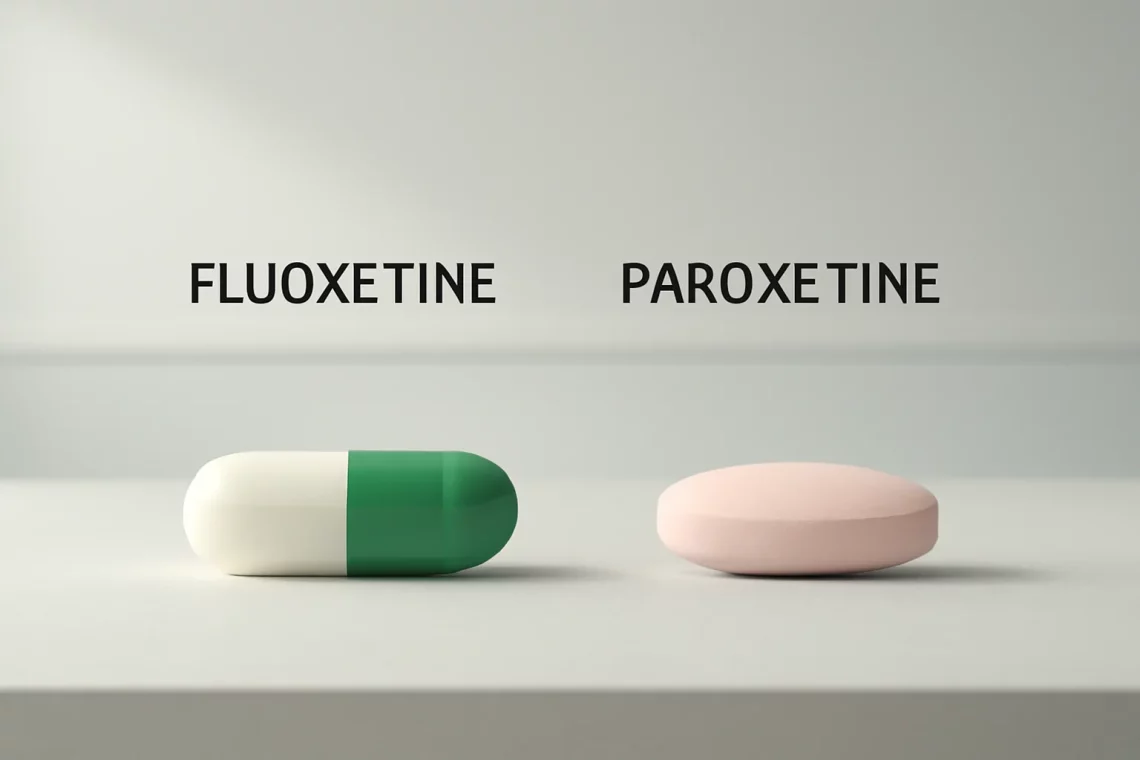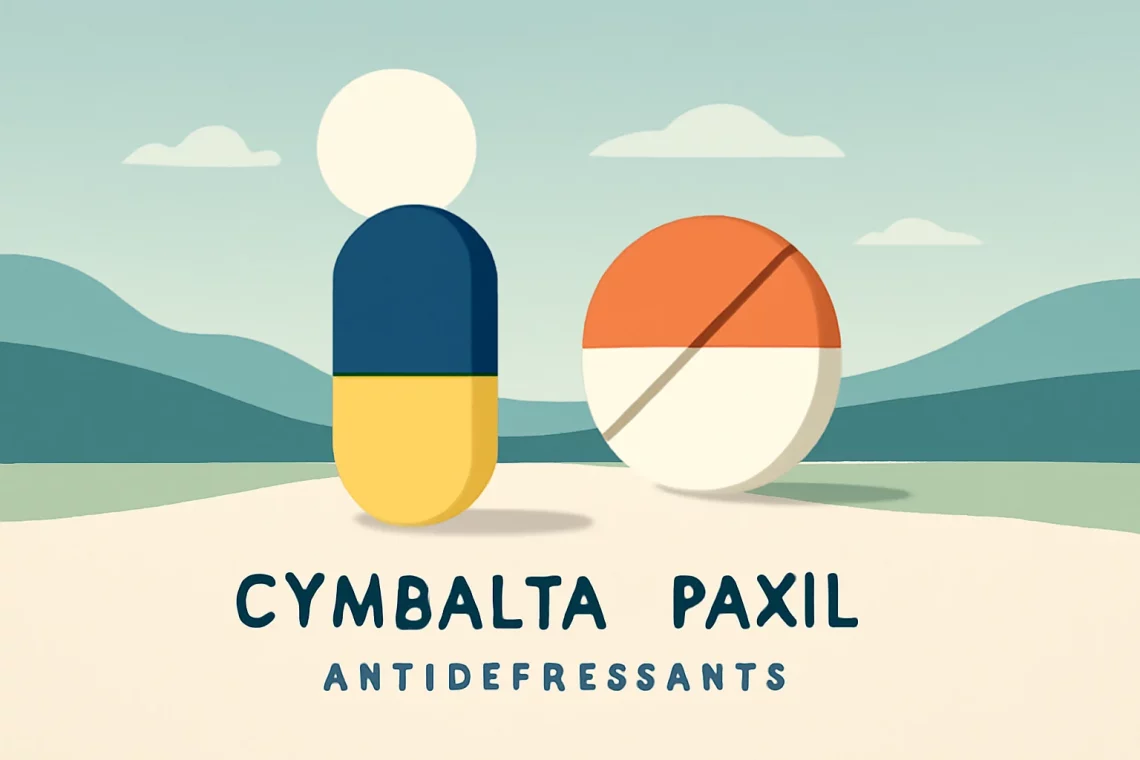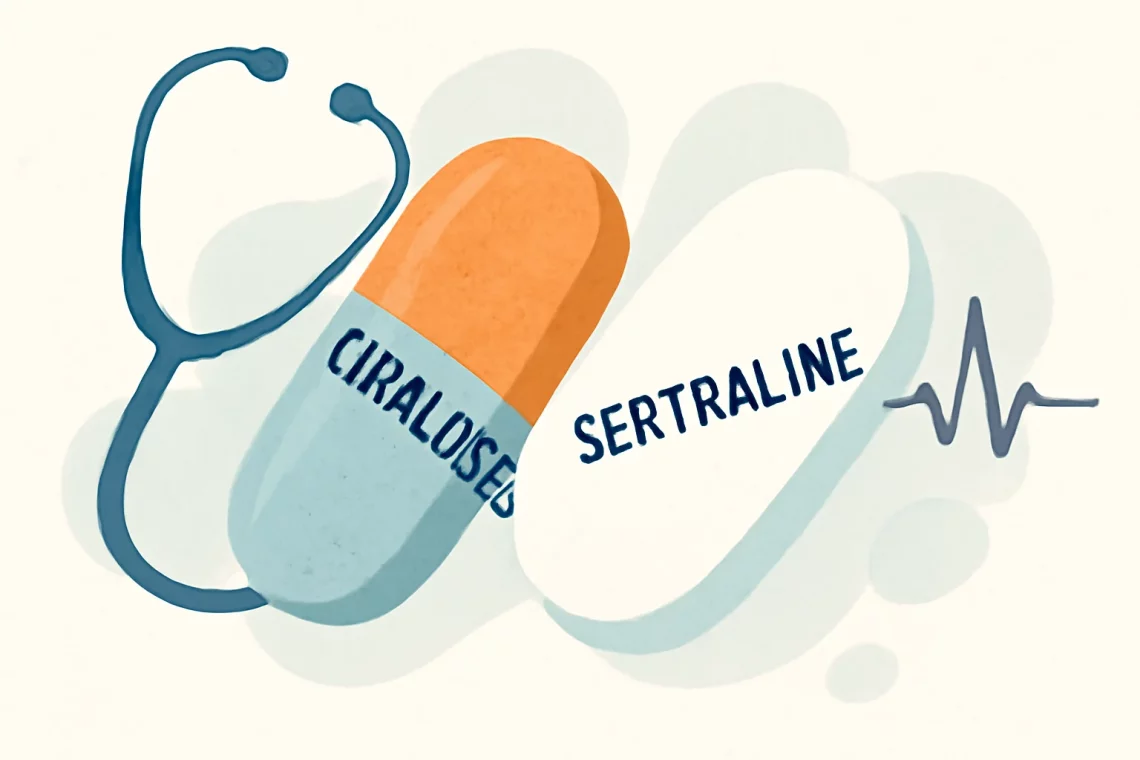-
Escitalopram vs Fluoxetine: Which Antidepressant Is Right for You?
Escitalopram and fluoxetine are two widely prescribed selective serotonin reuptake inhibitors (SSRIs) used primarily to treat depression and anxiety disorders. Both medications have gained popularity due to their efficacy and generally favorable side effect profiles compared to older antidepressants. The choice between these two drugs often hinges on various factors, including the specific diagnosis, individual patient history, and potential side effects. With mental health issues on the rise globally, understanding the nuances of these medications is becoming increasingly important for both healthcare providers and patients alike. As patients seek effective treatment options, it’s essential to consider not only the mechanisms of action but also the differences in efficacy, side effects,…
-
Cymbalta vs Effexor XR: Choosing the Right Antidepressant for You
Cymbalta and Effexor XR are two prominent medications commonly prescribed for various mental health conditions, particularly depression and anxiety disorders. Both belong to a class of drugs known as serotonin-norepinephrine reuptake inhibitors (SNRIs), which function by enhancing the levels of serotonin and norepinephrine in the brain, neurotransmitters that play crucial roles in mood regulation. The growing prevalence of mental health issues has led to an increased focus on effective treatment options, making it essential for patients and healthcare providers to understand the differences and similarities between these two medications. As mental health awareness expands, so does the importance of informed decision-making regarding treatment options. Both Cymbalta and Effexor XR have…
-
Fluoxetine vs Paroxetine: Choosing the Right Antidepressant for You
Fluoxetine and Paroxetine are two widely prescribed medications in the class of selective serotonin reuptake inhibitors (SSRIs). These drugs are primarily used to treat various mental health conditions, including major depressive disorder, anxiety disorders, and obsessive-compulsive disorder. Although they share a similar mechanism of action, their chemical composition, side effects, and uses can differ significantly. As more individuals seek treatment for mental health issues, understanding the nuances between these two medications becomes increasingly important. In recent years, there has been a growing recognition of the significance of mental health, leading to more people seeking help. The stigma around mental health issues is gradually dissipating, prompting discussions about effective treatment options.…
-
Wellbutrin vs Effexor XR: Which Antidepressant Is Right for You?
Depression and anxiety disorders are prevalent mental health issues that affect millions of individuals globally. As the understanding of these conditions evolves, so too does the approach to treatment. While therapy often plays a vital role in managing mental health, pharmacological interventions are commonly employed to help alleviate symptoms. Among the various medications available, Wellbutrin and Effexor XR are two options frequently prescribed by healthcare professionals. Each medication functions differently within the body and is designed to address distinct aspects of mental health disorders. Wellbutrin, generically known as bupropion, is primarily used to treat major depressive disorder and seasonal affective disorder. It is unique in its mechanism of action, as…
-
Cymbalta vs Paxil: Comparing Two Popular Antidepressants
The landscape of mental health treatment has evolved significantly over the years, with a variety of medications available to help individuals manage conditions such as depression and anxiety. Among these medications, Cymbalta and Paxil have gained considerable attention for their effectiveness in treating mood disorders. While both of these drugs belong to different classes of antidepressants, they are often compared due to their similar applications and potential side effects. Cymbalta, known generically as duloxetine, is a serotonin-norepinephrine reuptake inhibitor (SNRI) that is commonly prescribed for depression, generalized anxiety disorder, and chronic pain management. Paxil, or paroxetine, is a selective serotonin reuptake inhibitor (SSRI) that is primarily used to treat major…
-
Lexapro vs Effexor XR: Choosing the Right Antidepressant for You
Lexapro and Effexor XR are two commonly prescribed medications for the treatment of mood disorders, particularly depression and anxiety. As mental health awareness continues to grow, so does the interest in understanding the various options available for managing these conditions. These medications belong to different classes of antidepressants, each with its unique mechanisms of action, side effects, and benefits. In today’s fast-paced world, many individuals seek effective treatment options to help them cope with the challenges of daily life. The choice between Lexapro and Effexor XR can significantly impact a patient’s journey toward mental wellness. Understanding the differences and similarities between these two medications is essential for making informed decisions…
-
Lexapro vs Wellbutrin: Choosing the Right Antidepressant for You
The landscape of mental health medications is broad and diverse, with various options available to help individuals manage their conditions. Among these, Lexapro and Wellbutrin stand out as popular choices for treating depression and anxiety. While both medications aim to alleviate symptoms of mood disorders, they belong to different classes of antidepressants and work through distinct mechanisms in the brain. Understanding the nuances of these medications can empower patients and their healthcare providers to make informed decisions about treatment options. As mental health continues to gain recognition, it is essential to explore the efficacy, side effects, and overall patient experience associated with different medications. Each person’s journey with mental health…
-
Amitriptyline vs Nortriptyline: Choosing the Right Antidepressant
Amitriptyline and Nortriptyline are two medications that have garnered attention in the field of mental health and pain management. Both drugs belong to a class known as tricyclic antidepressants (TCAs), which were among the first types of antidepressants developed. Despite their similar origins, these two medications have distinct properties, uses, and side effects that make them suitable for various patient needs. Understanding the differences and similarities between Amitriptyline and Nortriptyline can be crucial for patients and healthcare providers alike. As mental health awareness continues to rise, more individuals seek effective treatments for conditions such as depression, anxiety, and chronic pain. These medications are often considered as part of a comprehensive…
-
Wellbutrin vs Zoloft: Choosing the Right Antidepressant for You
Depression and anxiety are increasingly common mental health issues affecting millions of people worldwide. As awareness of these conditions grows, so does the search for effective treatments. Among the various options available, two medications often discussed are Wellbutrin and Zoloft. Both are prescribed to help manage depression, but they work in different ways and have distinct profiles in terms of side effects, effectiveness, and mechanisms of action. Wellbutrin, known generically as bupropion, is an atypical antidepressant that primarily affects the neurotransmitters dopamine and norepinephrine. It is often chosen for patients who struggle with fatigue and low motivation, as it can help boost energy levels and improve mood without the weight…
-
Citalopram vs Sertraline Which Antidepressant is Right for You
Citalopram and sertraline are two widely prescribed antidepressants that belong to the selective serotonin reuptake inhibitor (SSRI) class of medications. These drugs are primarily used to treat various forms of depression and anxiety disorders, offering relief to countless individuals struggling with these conditions. The increasing prevalence of mental health issues has led to a growing interest in understanding the effectiveness and differences between these two medications. Both citalopram and sertraline work by increasing the levels of serotonin in the brain, a neurotransmitter that plays a crucial role in mood regulation. Despite their similar functions, they have distinct characteristics, side effects, and dosing regimens that can influence the choice of one…







































